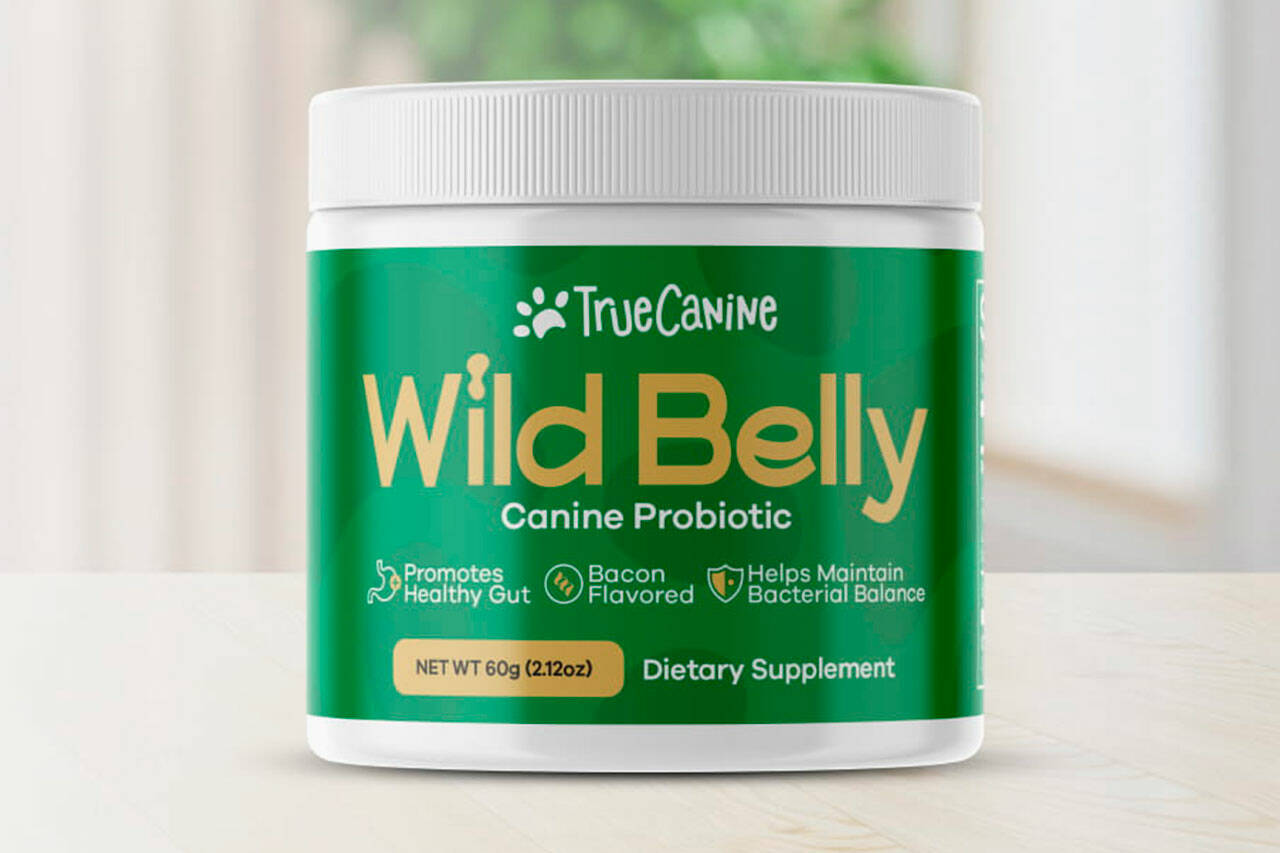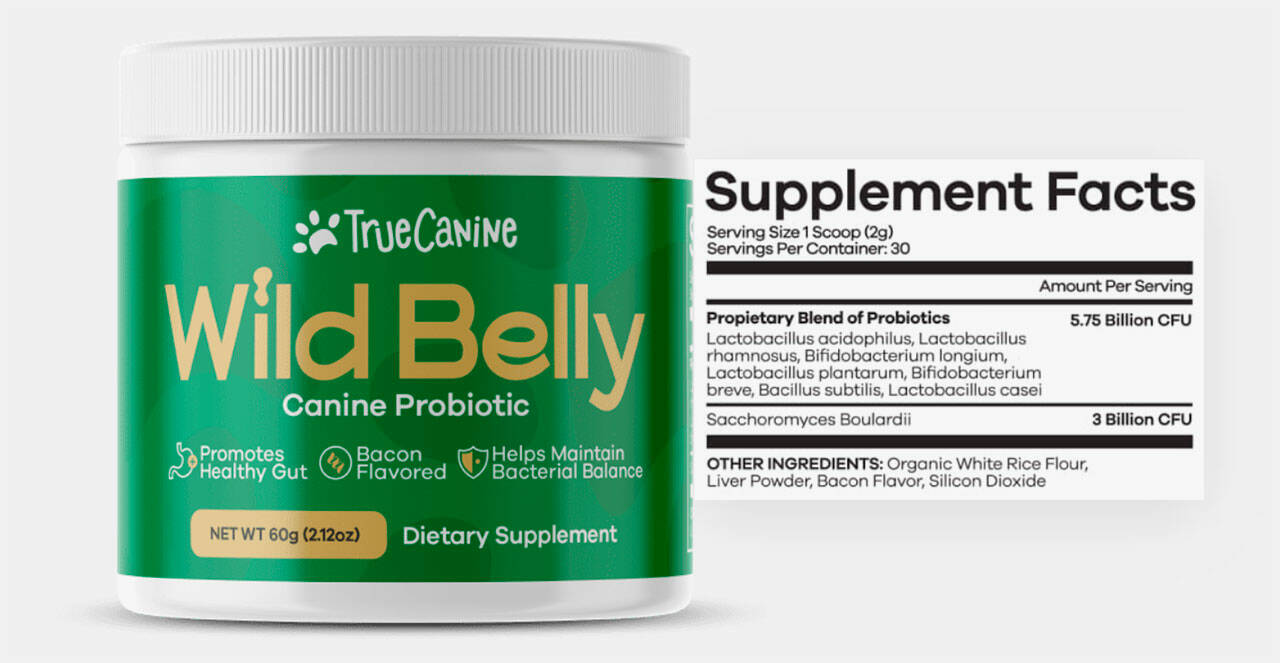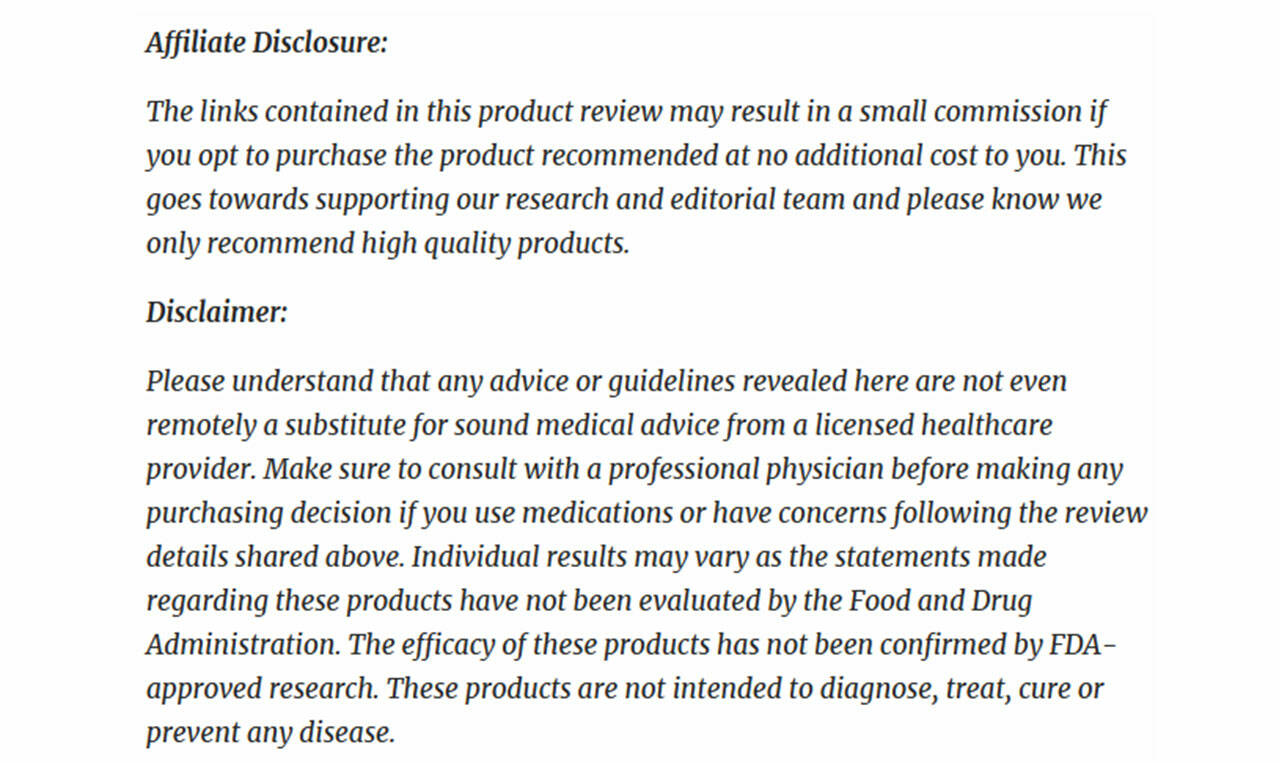Are you sick of seeing your dog experience constant diarrhea? Feel like your dog’s energy level has decreased recently? How does their breath and overall smell? Based on the claims made by one team, each of these indications point to a significant underlying problem that has not been resolved. We are specifically referring to gut health. In reality, these are the same signs that doctors advise people to watch out for.
The primary distinction is that probiotics are typically advised for people while antibiotics are given to dogs. Antibiotics can certainly be helpful, but they only work temporarily. What’s worse is that antibiotics mess with the gastrointestinal tract. Fortunately the same team that recognizes the positive effects probiotics can have on dogs’ health has since developed a dietary supplement suitable for them. This is where it is fitting to introduce TrueCanine Wild Belly.
What is TrueCanine Wild Belly?
TrueCanine Wild Belly is a probiotic supplement for dogs developed by Ross Parker, a 30-year veteran of the veterinary, agricultural, and food industries. When used as directed, pet owners will notice a reduction in their dogs’ diarrhea, vomiting, and other related episodes. Not only that, but he also believes that this formula has the potential to eliminate allergies, itchy skin, paw licking, and unpleasant odors. Above all, pet owners will be relieved to see that their dogs have regained their incredible strength, enthusiasm, and general playfulness. To fully comprehend how such wide-ranging outcomes are possible in the first place, we must evaluate the TrueCanine Wild Belly formula in greater depth.
How does TrueCanine Wild Belly work?
Ross Parker is of the opinion that modern veterinarians are just interested in providing short-term relief, never taking the time to completely look into the potential underlying causes of dogs’ digestive issues. He actually thinks that using only antibiotics, anti-inflammatories, and other medications isn’t the best course of action, which is what inspired him to create TrueCanine Wild Belly. This dietary supplement is intended to provide dogs with beneficial bacteria, often known as probiotics. This implies a better microbiome, enhanced innate immunity, and an unquestionably healthy gut.
Further investigation by our editorial team revealed that destroyed or damaged microorganisms could result in stomach upset and a general decline in canine health. It is possible that a lack of probiotics is causing episodes of diarrhea or frequent illness in dogs. The American Kennel Club[1]also emphasized the significance of prebiotics, which are nutrients created to support and nourish probiotics and ensure that they are already present in the colon.
When it comes to when a solution like this would be most suitable for dogs, the same source listed some triggers, such as bacterial imbalance, emotional stress, abrupt changes in a dog’s eating plan, old age, parasites, and the use of antibiotics and steroids. With all of this foundational knowledge, we can now move on to the pivotal point of this review: the ingredient’s list.
What ingredients are inside TrueCanine Wild Belly?
The main ingredients inside the TrueCanine Wild Belly formula include:
Lactobacillus acidophilus
Lactobacillus acidophilus [2]is a type of gram-positive bacteria that ferments sugars to produce lactic acid. This kind is thought to be the main probiotic present in both the canine and feline digestive systems in addition to those of humans. Nonetheless, a 2004 study examined the survivability of L. acidophilus in dry dog food. The researchers were specifically interested in determining the bacterium’s travel to the gastrointestinal tract and whether it could populate the colon.
Although only 15 healthy adult dogs were used in this study, the researchers concluded that L. acidophilus can be included in dry dog food, survive in the canine gastrointestinal tract, and populate the colon. All of these factors allegedly work to strengthen immunity and support intestinal health.
Lactobacillus rhamnosus
L. rhamnosus is another type of bacteria found primarily in the intestines and responsible for the production of lactase. In a 2009 [3] study, giving L. rhamnosus to puppies helped reduce immunologic markers of atopic dermatitis (i.e., a condition that causes dry, itchy, and inflamed skin).
A more recent study [4], which also looked at atopic dermatitis (AD), focused on the effects of a spray containing heat-killed L. rhamnosus and L. reuteri. Consequently, the researchers reported a significant and rapid reduction in the clinical signs of AD; however, they advise larger, randomized, controlled studies to verify these findings. It is also important to note that the survivability of this strain is dose dependent [5].
Bifidobacterium longum
B. longum [6] is the next gram-positive probiotic typically found in the intestines. In search for answers, our editorial team stumbled upon a 2020 study looking at the effects of B. longum on canine AD. Despite the study’s small sample size, the researchers found that dogs who had to orally take B. longum had lower scores on the Canine Atopic Dermatitis Extent and Severity Index at four, eight, and twelve weeks. While there was no significant difference in transepidermal water loss, pruritus, or drug dosage with this strain, an improvement in skin lesions led them to conclude that B. longum could be considered for severe skin symptoms associated with AD.
Lactobacillus plantarum
L. plantarum [7]could have been chosen for TrueCanine Wild Belly because it has been sought after for controlling digestive problems and bolstering the immune system. A double-blind, placebo-controlled study conducted in 2016 looked at the effect of probiotics on 60 dogs suffering from acute diarrhea. These healthy adult dogs were given either a sour-milk product containing L. fermentum, L. rhamnosus, and L. plantarum or a placebo.
By the end, the trio had been shown to normalize canine stool consistency, aid in appetite upkeep, and reduce vomiting. Finally, the researchers noted that taking probiotics was associated with a reduction in the number of pathogenic organisms present in the feces.
Bifidobacterium breve
B. breve [8] is a gram-positive bacterium that is abundant in the intestines, as are the majority of the probiotics in this dietary supplement. One source cited a number of studies purportedly supporting B. breve in terms of improving gut and skin health, reducing the frequency of diarrhea episodes, and relieving human subjects of constipation.
Unfortunately, research on the effects of B. breve on dogs is limited, preventing us from truly understanding whether existing evidence suffices for their uses. Notably, one study[9]on the impact of several probiotics (including B. breve) on IBD treatment in dogs continued to insist on the combination’s potential, but the same remark about limited evidence was made again.
Bacillus subtilis
B. subtilis[9]is the first probiotic strain to be studied among the many available today. One study focused on this strain’s overall nutrient digestibility, fecal characteristics, and intestinal fermentation in dogs. While there were no differences in nutrient digestibility between the placebo and probiotic groups, the latter group reportedly had lower fecal concentration with protein catabolites and significantly reduced bad odor.
Lactobacillus casei
L. casei[10]is a well-known probiotic that can be found not only in the human body but has also as an addition to ferment food. As per one source, this strain is also required for animals due to its capacity to promote L. acidophilus production, which, as previously stated, is essential for dogs’ digestive and immune functions. Other reported advantages include improved control of diarrhea and constipation, proper digestion, and absorption of food, and decreased gut inflammation.
Saccharomyces Boulardii
Finally, we have S. boulardii [11], a yeast derived from lychee skin. Due to its potential to alleviate symptoms of Crohn’s disease, frequent diarrhea, IBS, and ulcerative colitis, alternative medicine practitioners vouch for this ingredient. In the context of canine health, one study [12]found that probiotics improved stool frequency and consistency, as well as body condition score, in dogs with chronic enteropathies. The ingredient was also deemed safe for dogs by the researchers, who believe it could be a useful addition to standard therapy.
Frequently Asked Questions (FAQ)
Is TrueCanine Wild Belly safe?
TrueCanine Wild Belly is said to be safe for dogs due to the fact that many of the probiotic strains listed are naturally found in their bodies. However, for peace of mind, pet owners should consult with a veterinarian before making any adjustments to their routines.
How many colony forming units (CFUs) are found per TrueCanine Wild Belly serving?
Each serving (2g) contains 8.75 billion CFU per serving. Other ingredients include Organic White Rice Flour, Liver Powder, Bacon Flavor, and Silicon Dioxide. This supplement also contains no fillers, artificial flavors, or preservatives.
How should TrueCanine Wild Belly be administered?
The serving size for dogs under 20lbs is half a scoop (1g), while the serving sizes for dogs between 20 and 75lbs and over 75lbs are one (2g) and two (4g) scoops, respectively.
What flavor does TrueCanine Wild Belly come in?
TrueCanine Wild Belly only comes in bacon flavor.
How do I know TrueCanine Wild Belly is working for my dog?
Pet owners are encouraged to monitor their pets’ troubling health issues, e.g., bowel movements, skin, and coat health, and even their breath. They should notice some changes with each passing week, but for the full benefits to be realized, each serving must be administered once daily.
What are the purported benefits of administering TrueCanine Wild Belly?
TrueCanine Wild Belly’s key advantages include a healthy gut, a balance of good and bad bacteria, a boosted immune system, controlled bowel movements, a healthy coat, and, to put it mildly, a lovely odor.
How long will it take for TrueCanine Wild Belly shipments to arrive?
Orders in the United States should arrive within 3 to 5 business days of shipment, whereas international orders may take up to 14 business days.
Is TrueCanine Wild Belly protected by a money-back guarantee?
TrueCanine Wild Belly is backed by a 90-day money-back guarantee. If a dog’s rightful pet owner does not notice any improvements within three months of incorporating this into their pet’s routine, customer support must be contacted immediately to initiate the refund processes. As of this writing, sending an email to customercare@gettruecanine.com is the quickest and easiest way to do this.
How much does TrueCanine Wild Belly cost?
Each TrueCanine Wild Belly bottle contains enough powder to last one month. Here’s a breakdown of the pricing:
- 1 TrueCanine Wild Belly bottle: $49 each
- 3 TrueCanine Wild Belly bottles: $39 each
- 6 TrueCanine Wild Belly bottles: $33 each
Final Thoughts
Probiotics have long been advocated for consumption by humans to improve gut and immune health, but we rarely learn of their beneficial effects on dogs. TrueCanine Wild Belly contains 8.75 billion CFU per serving to improve gut and immune function, decrease diarrhea episodes, promote healthy skin, and coat, and assure bowel regularity.
Most importantly, this supplement is thought to support general wellness and help dogs rediscover their sense of self. Our research indicates that the chosen ingredients do, for the most part, meet the primary goals, although pet owners should be aware that most existing studies have small sample sizes. So going forward, it would be wise to visit a veterinarian before implementing changes.
Considering everything, transparency is the one area that is dissatisfying. In particular, our editorial team couldn’t verify the backgrounds of Ross Parker, the purported creator of this supplement, or TrueCanine, the manufacturers. Ultimately, pet owners with questions about TrueCanine Wild Belly may want to speak with customer service before placing an order. In the meantime, more information on TrueCanine Wild Belly can be gathered by visiting here>>>.
RELATED PRODUCTS:








